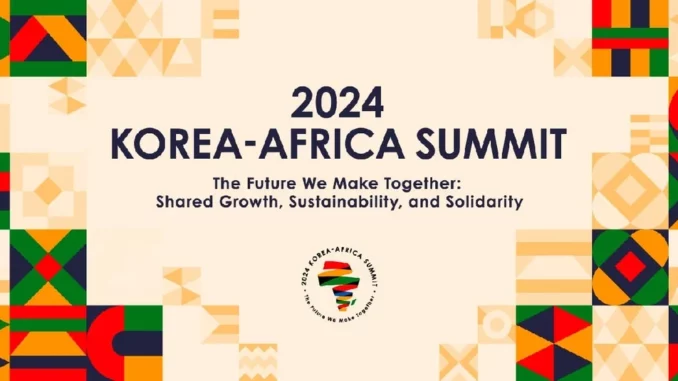
Morocco is convinced that the African-Korean partnership is a crucial driver for the continent’s progress, for global stability, and for the achievement of international justice, said, on Tuesday in Seoul, Speaker of the House of Representatives, Rachid Talbi El Alami, who represents King Mohammed VI at the 1st Korea-Africa Summit.
“The Korean-African partnership complements the continent’s other partnerships, which we respect and value. We also believe the image of the Republic of Korea in Africa, its remarkable success story, the speed with which it has achieved its technological, scientific and economic emergence, and its firm commitment towards the stability, territorial integrity and national sovereignty of African countries are both incentives and drivers for the success of the fresh momentum given to African-Korean cooperation,” emphasized Talbi El Alami in a speech on behalf of the Kingdom of Morocco.
Morocco remains committed to consolidating the special cooperation it enjoys with Korea and seeks to take it to a higher level by opening up broader prospects, he added at this Summit held under the theme: “The Future We Make Together: Shared Growth, Sustainability, and Solidarity.”
The Kingdom, which has cordial ties as well as various cooperation and trade relations with Korea, takes pride in the solid, diversified bonds uniting it to the vast majority of African countries, pointed out Talbi El Alami, adding that since the accession of King Mohammed VI to the throne in 1999, Morocco has signed more than a thousand cooperation agreements and protocols with another forty African countries, bringing the total number of agreements signed by the Kingdom with African sister nations to more than 1,500.
Lower House Speaker said this significant number of agreements attests to Morocco’s sincere, firm, and purposeful commitment to inter-African cooperation.
This project fits with the international initiative announced by the King in November 2023, which – given the inadequacy of basic infrastructure in the African Sahel countries – seeks to enable these landlocked countries to have access to the Atlantic Ocean, put an end to their isolation, and implement major cross-border projects that connect Africa to the world, and involve various economic stakeholders in this ambitious development project, he said.
Talbi El Alami added that all of these projects target lofty humanitarian objectives more than commercial ones. They attest to a desire to empower African peoples and uphold their right to development and to benefit from industrial, technological and scientific progress, in addition to ensuring access to basic services.
“No doubt that this vision, which is rooted in solidarity, and these values, which are meant to help achieve shared progress, will contribute to the emergence of Africa, the promising continent, the continent of the future,” he stated further, pointing out that the world needs to set right many misconceptions about Africa, the more so as it is the continent of opportunity, of young human resources, and of enormous potential.
“Africa has every right to achieve development which, in turn, contributes to stability, particularly in an international environment characterized by conflict and trends which undermine coexistence.”
